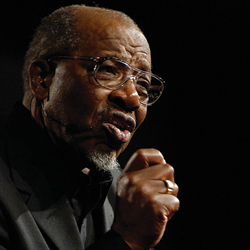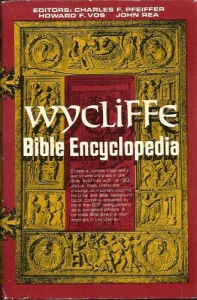[This is the fifth article in the series of God Moments in My Publishing Life.]
In 1970 my God Moment, the invitation from Moody Bible Institute to head up the editorial department of Moody Press, became a long-term U-turn in our family’s life. As family we settled back into the Glen Ellyn/Wheaton area 30 miles west of downtown Chicago, the community we had left four years earlier. I began life as a commuter, first in a carpool and then by train, which let me read a daily newspaper on the way home and process correspondence with writers on the way to work.
Unfortunately, our house in British Columbia took six months to sell. God knew I was not earning enough to sustain two mortgages, so he implemented another God Moment. I received a call from Bill Krutza, a member of the church we attended.
“Les, the new Urban Ministries curriculum for inner city kids needs a junior high writer. Would this interest you? Henry Soles will be the editor and you will be working with him.”
I had taught Sunday school in every church we attended, from preteen to adult, but a white Canadian writing curriculum for mostly African American kids in the inner city? Then I remembered the swarms of neighborhood African American boys who’d regularly flood Moody Bookstore—and the African American men and women filling the store two evenings a week to buy books on their way to Moody Evening School classes. As a writer I had developed at least some cross-cultural sensitivities.
“I’ll tackle it if Henry Soles will acculturate what I write,” I responded.
For two years I spent many evenings writing lessons for African American junior high kids and turning them over to Henry Soles, a delightful person and former Newark, NJ daily reporter. But God was not finished with my acculturation.
A Dallas Expo God Moment
In 1972 Moody Press agreed to send me to Campus Crusade for Christ’s Expo for college students in Dallas—and another God Moment occurred. I had attended the evening meeting in the 100,000-seat Cotton Bowl, where Billy Graham had challenged the students filling the Cotton Bowl. Arriving at my hotel I headed for the restaurant. Looking around, I spotted only one empty seat opposite an African American. I sat down, extended my hand and gave my name. He responded with, “I’m John Perkins.”
 His name rang a bell. I had read about an African American Christian leader in Mississippi who had been badly beaten by a sheriff after he inquired about young men he was mentoring being imprisoned for no reason. I immediately sensed a story, having earlier told the story of another African American leader, Tom Skinner, for Christian Life Magazine. In my conversation with John Perkins I discovered he had loaned four of his converts to Campus Crusade in an effort by Bill Bright to enlist African American students for Expo. Later I had dinner with John, his wife Vera Mae, and the four young men. Six months later I visited Mendenhall, MS, John’s first ministry headquarters and center of several practical experiments to economically empower poor African Americans: co-op housing, a credit union, a co-op low-cost clothing store.
His name rang a bell. I had read about an African American Christian leader in Mississippi who had been badly beaten by a sheriff after he inquired about young men he was mentoring being imprisoned for no reason. I immediately sensed a story, having earlier told the story of another African American leader, Tom Skinner, for Christian Life Magazine. In my conversation with John Perkins I discovered he had loaned four of his converts to Campus Crusade in an effort by Bill Bright to enlist African American students for Expo. Later I had dinner with John, his wife Vera Mae, and the four young men. Six months later I visited Mendenhall, MS, John’s first ministry headquarters and center of several practical experiments to economically empower poor African Americans: co-op housing, a credit union, a co-op low-cost clothing store.
John was not in town, but his protégé, Dolphus Weary, was, so I interviewed him as we walked through the framework of a medical center being built. During that time Rita went door to door with Rosie, Dolphus’s wife, selling baked goods. The stories I developed from that interview I integrated into the student lessons I was writing for Urban Ministries, into an article for Sunday Digest, and into an article I wrote for Christian Service Brigade’s leadership publication. My strategy had become to go for multiple uses of the research done.
An Article that Opened Doors to Whitey
John Perkins later showed up in Chicago, so I invited the editorial team at Moody Magazine to have coffee with him. They then agreed to let me write a profile on John for the magazine. Two years after the article appeared, John invited me to become a charter member of his national Board of Servants because, he said, “Your article opened the door for white Christians to support our ministry in Jackson, MS.”
For 20 years I provided encouragement and training for the Voice of Calvary Ministries’ writing team when at board meetings, participated in work days—and spent hours listening to African American leaders discuss the problems they had working with national Christian organizations. They provided an indepth look at racial discrimination in evangelical organizations as young African American men graduated from Christian colleges or secular universities. After 20 years I was the sole charter member of that first Board of Servants and the only white man left, so many God Moments later I thankfully let another local African American leader take my place.
The Daunting Backlog in Reference Books
Meanwhile I faced a challenge at Moody Press. Dr. Howard Vos had become a part-time academic editor for Moody Press in the 1960s and started numerous reference book projects. When he moved to King’s College at Briarcliffe, NY he moved into an advisory role, but left behind numerous unfinished projects. Peter Gunther as director of Moody Press, called me in and promised his strong support to get the reference books completed.
 James Matheson, the new academic editor, and I worked together to get the Wycliffe Bible Commentary, Wycliffe Encyclopedia, Old Testament Theological Dictionary back on track. When he left we engaged Dave Douglass, who was more of a desk editor, to provide hands-on editing. Peter Gunther appointed me the chair of the academic committee, a group of professors from Moody, Wheaton College, and Trinity College and Seminary. Eight months of the year we met to discuss what biblically-based textbooks and collateral texts were needed.
James Matheson, the new academic editor, and I worked together to get the Wycliffe Bible Commentary, Wycliffe Encyclopedia, Old Testament Theological Dictionary back on track. When he left we engaged Dave Douglass, who was more of a desk editor, to provide hands-on editing. Peter Gunther appointed me the chair of the academic committee, a group of professors from Moody, Wheaton College, and Trinity College and Seminary. Eight months of the year we met to discuss what biblically-based textbooks and collateral texts were needed.
Initially, Jim Matheson and I visited colleges and seminaries, sponsoring lunches for professors interested in writing books—and then meeting one-on-one with those with specific book projects. Every year my tour of colleges and seminaries surfaced new textbook and collateral texts ideas, which were run by the Textbook Committee. In time all the projects begun by Dr. Vos were completed and published, along with five or six textbook-related books by leading scholars every year.
An Inductive Bible Study Genius
One of the most fascinating inductive Bible study series Moody Press published came from the Bible-infused mind of Dr. Irving Jensen, Bible professor at Bryan College in Tennessee. The goal was to develop usable personal and group inductive Bible studies for every book of the Bible. As Dr. Jensen finished the manuscript for a book, it would be turned over to our designer, who prepared the detailed layout of the studies. Later we had Dr. Jensen write the textbooks Survey of the Old Testament and Survey of the New Testament, both of which had a strong acceptance in the market. Working with a Moody faculty member, the designer and Dr. Jensen developed overhead transparency study aids for teachers, like biblical maps and charts of historical periods.
While not clearly recognized by the Institute’s administration, as editors we believed all of this reference book, textbook, and Bible study material represented an extension of the educational purpose of Moody Bible Institute. All over the country students and small groups were studying books representing the theological/biblical position of the Institute. Sadly, when in 1978 Peter Gunther was demoted, like his good friend Kenneth Taylor had been demoted 16 years earlier, five key Moody Press staff left for other positions and that mission fell by the wayside. Where I landed is a story for another installment, but first I must tell of another God Moment that made Moody Press a Bible publisher of note, a ministry still being carried on today.




Les, I should have commented on these articles sooner. I am enjoying each one of them. Thank you for sharing. This post particularly caught my interest and this is a portion of your ministry that is new to me. Do keep posting.
Clella
Amazing. What a life you have lived. Thanks for sharing it with us.